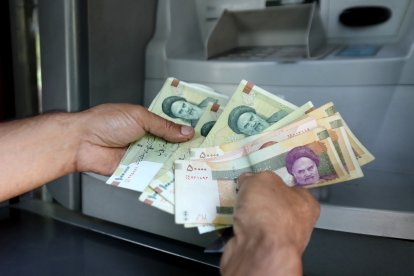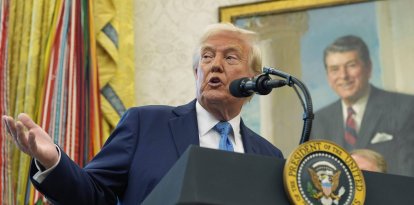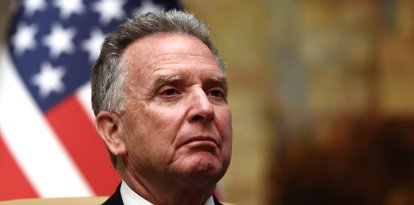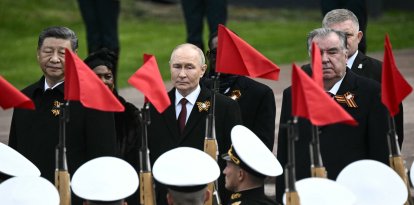Economic-energy crisis in Iran: currency falls to historic low and part of the country goes dark
The Iranian rial plummeted by 10% since Trump won the presidential election last November. In addition, the authorities carried out scheduled power cuts and imposed strict energy-saving measures.

Iranian Rials
The economic crisis in Iran continues to worsen. The price of the Iranian rial, the country's currency, fell to an all-time low on Wednesday, reaching a 10% plunge since Donald Trump won the US presidential election on Nov. 5, Associated Press reported.
According to Iranian reports, the rial traded Wednesday at 777,000 per dollar, in contrast to the 703,000 recorded on the day Trump won the election.
Before the 1979 Islamic Revolution, when the ayatollahs took power in Iran, the currency was priced at 70 rials to the dollar. Moreover, in 2015, when Tehran signed the nuclear deal with world powers, an event that resulted in the removal of much of the sanctions against the Iranians, the rial was trading at 32,000 to the dollar.
Likewise, the currency's price was 584,000 rials to the dollar when the new Iranian president Masoud Pazhakhian took office last July 30. The ruler, considered a moderate compared to other leaders of the Persian country, had promised to try to reach a new nuclear agreement.
Energy crisis
In addition to the sharp drop in the currency, citizens are also faced with a severe energy crisis.
Authorities announced the closure of schools, universities and government offices in Tehran and several provinces because of the energy crisis caused by extreme cold, heavy snowfall and pollution, Associated Press said.
Indeed, Iranian authorities have been turning off Tehran's road lights for two months to save energy as the country struggles to cope with fuel shortages amid higher demand during the winter.
Speaking to the official news agency IRNA, deputy head of Tehran's power company Alireza Rezaei said these measures will continue as long as the crisis persists.
Despite having vast oil and gas reserves, years of underinvestment in infrastructure and international sanctions imposed for its nuclear program and its support of terrorist organizations have severely damaged Iran's energy sector.
This situation has also resulted in the authorities implementing scheduled blackouts.
In recent weeks, Iran had already imposed restrictions on electricity consumption due to gas and fuel shortages.
A new setback for a weakened Iranian regime
These blows constitute a new setback for Iran's theocratic Shiite government, which has lost influence in the Middle East due to the heavy damage done by Israel to the Lebanese terrorist group Hezbollah and the fall of Bashar al-Asad's regime in Syria.
RECOMMENDATION






















